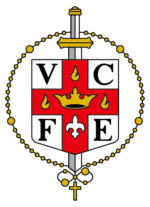St. Thomas Aquinas was called by Pope Pius XI “non modo Angelicum, sed etiam Communem seu Universalem Ecclesiae Doctorem”, that is, not only the Angelic but also the Common or Universal Doctor of the Church. One of the most important aspects of the thought of St. Thomas is his recognition, that faith and reason are not opposed to each other, but rather, in the words of Pope St. John Paul II in the encyclical Fides et Ratio, “are like two wings on which the human spirit rises to the contemplation of truth”, which is none other than God Himself.
In this age, as in every age, Holy Mother Church is beset by all sorts of errors and the Barque of Peter is buffeted by the tempests of every manner of heresy, from within and from without, particularly in attempting to divorce faith from reason. But it is precisely because man is given the gift of reason by God that reason should be employed effectively in the defense and promotion of the Catholic faith and in getting to know the Giver of the gift Himself. To do so, we take as our model and exemplar, and our teacher and guide, St. Thomas Aquinas who embodied in himself and in his life the effective and fruitful union of faith and reason which led him ultimately to reason’s end and the fulfillment of faith’s hope, the Beatific Vision.
In our religious family, one of the ways in which this is done is by having the days of Thomistic Studies, during which papers are presented on an important topic by the seminarians and fathers of the Institute of the Incarnate Word and the sisters of the SSVM. The topic this year was on Causality and the study was broken down into the historical, doctrinal and theological sections. The thought of a wide selection of philosophers was presented, from Plato and Aristotle, Spinoza and Hume to St. Thomas Aquinas. From the various papers, we could see the sources of the Thomistic synthesis and the importance of causality, doctrinally and theologically, especially in the causality of the Passion towards our redemption.
The days of the Thomistic Studies, which was very educational for the novices and seminarians of the Houses of Formation and the sisters of the SSVM and for the participants and presenters themselves, ended with a Holy Mass. May St. Thomas Aquinas continue as a beacon of reason for the Church to enlighten our way to the Truth.

Leave A Comment